“Penafirme Convent”
format: competition entry
status: concept
arch. Plamen Rusev
Arkxsite
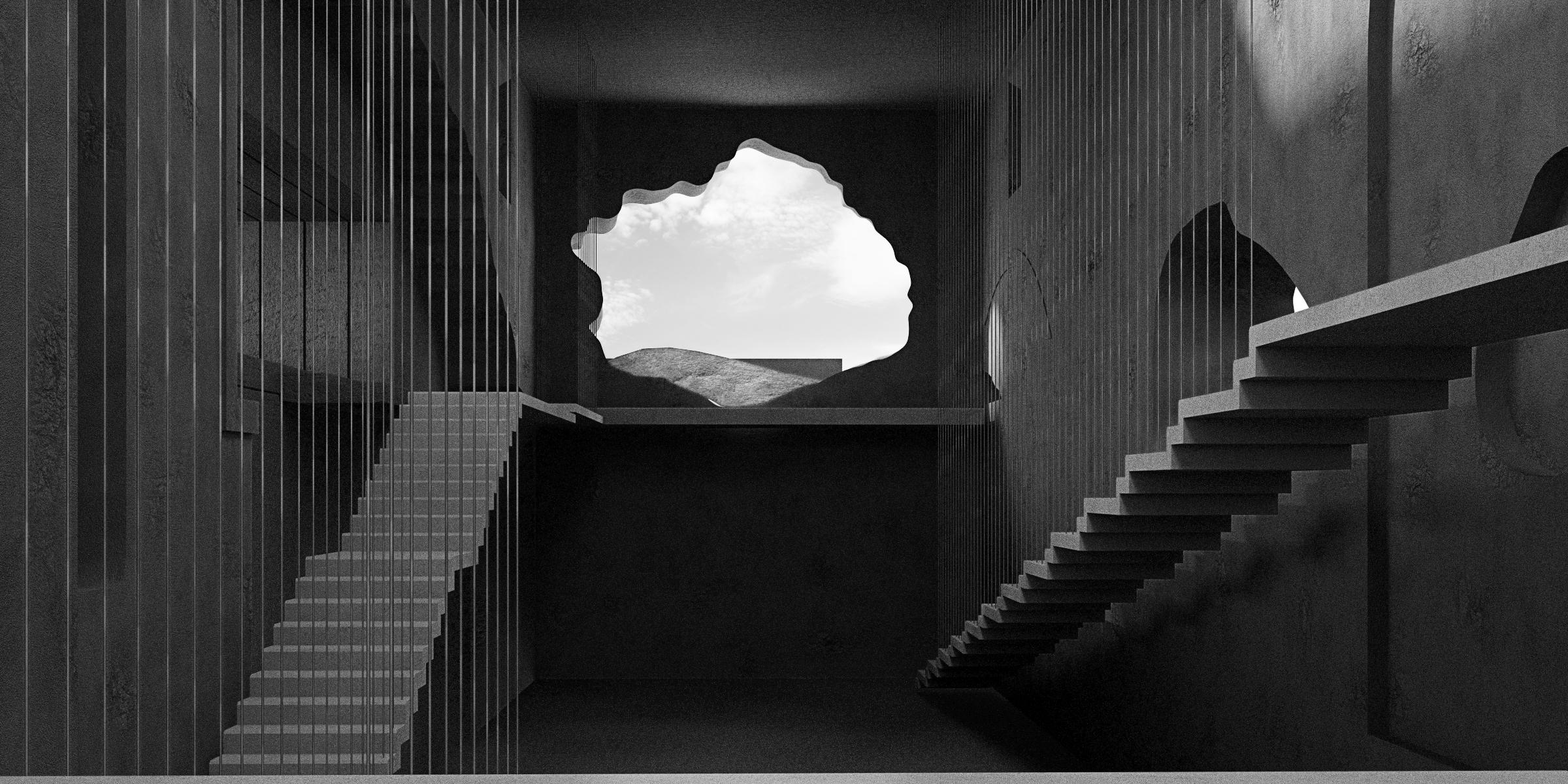
Fragments of freedom
Between the facts and legend, between the intentions, physical existence and performing the specified function
Historical sources are distinguished by various dates that mark the intention to build Penafirme Convent, the physical construction of the building and its existing as a monastery. The legend tells another story about a nobleman who, drowning in the sea, begs Our Lady of Grace for help.
Paradox :
Buildings of this type usually have a long physical life. Penafirme Convent has a short physical life, but the process between intentions and the "first step" that led to its existence is extremely long. In this way, the process becomes an idea. The idea became a legend despite the short functional life. There are remains-ruins after the destruction. But the remains are already sustainable over time because they are an idea.
1. "Penafirme" Convent Ruins 2. Intervention 3. Access roadNow stop and take a look around.
Below the line here we have an architecture that is assembled from the available elements. If we can't assemble it, we'll just hang it up and let it levitate.
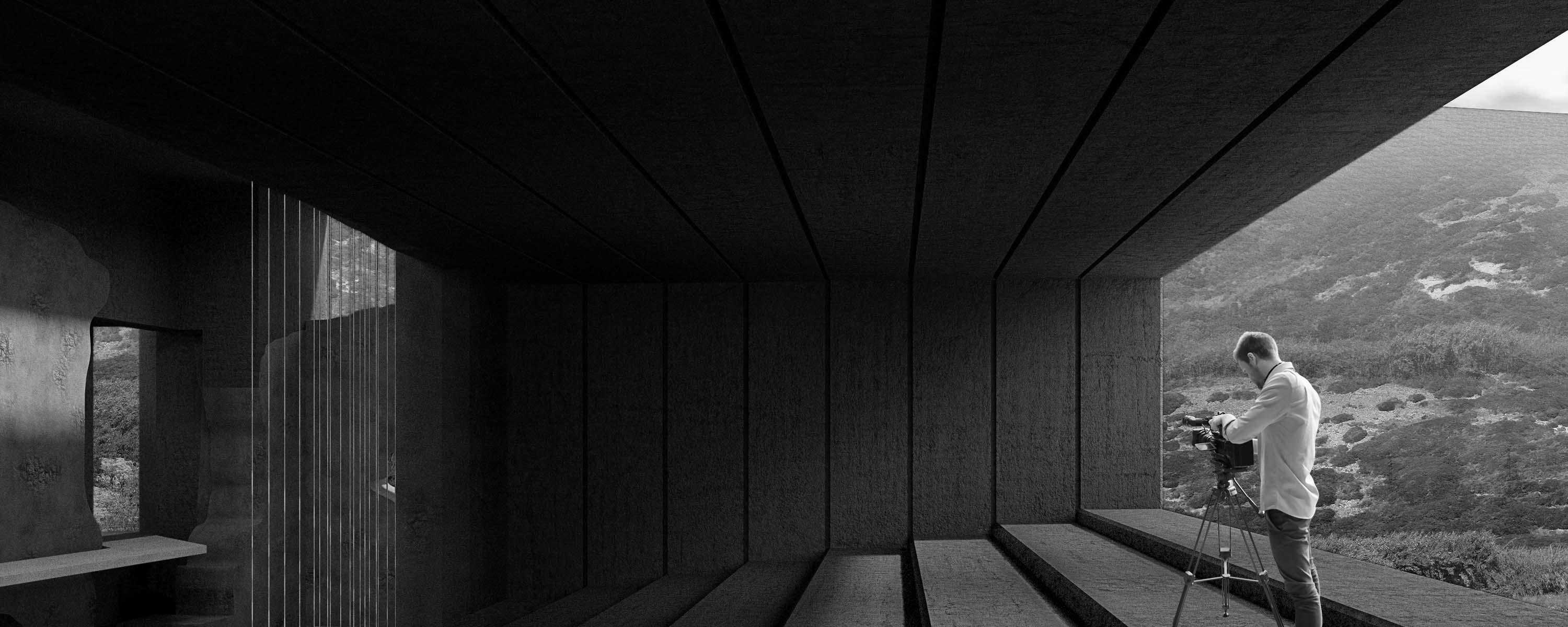

a. Entrance at ground level
b. "Inner space"-prayer

b.1. Transition and recognition


b.2. Contemplation and introspection
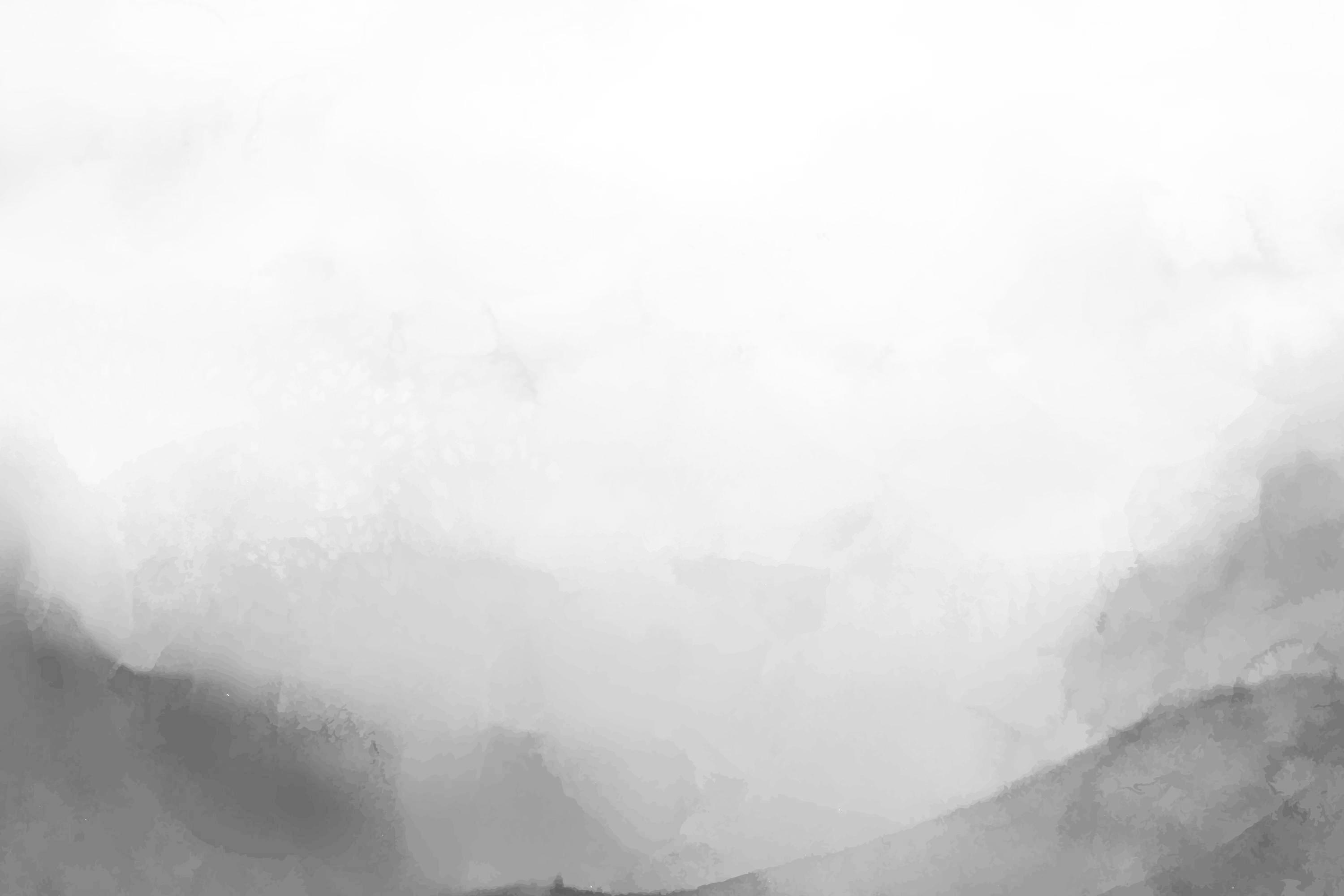




c. Memory chamber

d. Cells

d.1. Bathrooms
d.2. Cooking and eating
d.3. Reading
e. Transition between ground level and subterrain level
f. Cloister
Concept :
The ruins turn into fragments. The idea they carry materializes through the new spaces. The terrain, constantly changing with the dunes, "freezes" in time. It becomes part of the Site Convent.
Together they receive the freedom to be their purpose.
Together:
The entrance has stairs and an open door. It separates the terrain and the Inner space. Before the sacristy kept the secrets and antiques of the convent. Now the Memory chamber stores the history and the idea behind it. After getting acquainted with them, visitors are ready to enter the Inner space, having the right attitude.
The Inner space is a semi-enclosed transitional space which allows for introspection, contemplation and prayer. Visitors pass through it to separate themselves from the outside world. It is located in the fragment of the church and detached from the ground.
Low with dim light, where the perception of silence is enhanced by the presence of architecture.
It consists of:
-transition, recognition, pulpit:
Transition between spaces and recognition as a personal choice. There is no contact with the floor to preserve the difference between collective and personal presence, so important for privacy.
-a space for prayer, where the ruins demonstrate their symbolic meaning
-contemplation and introspection

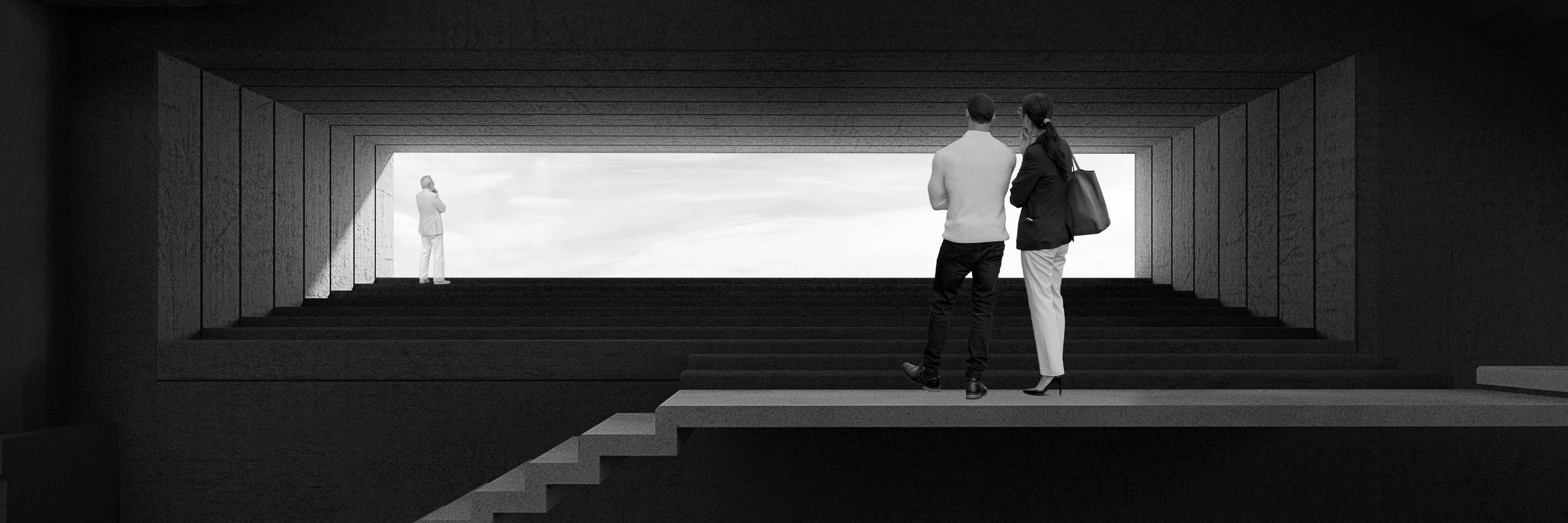
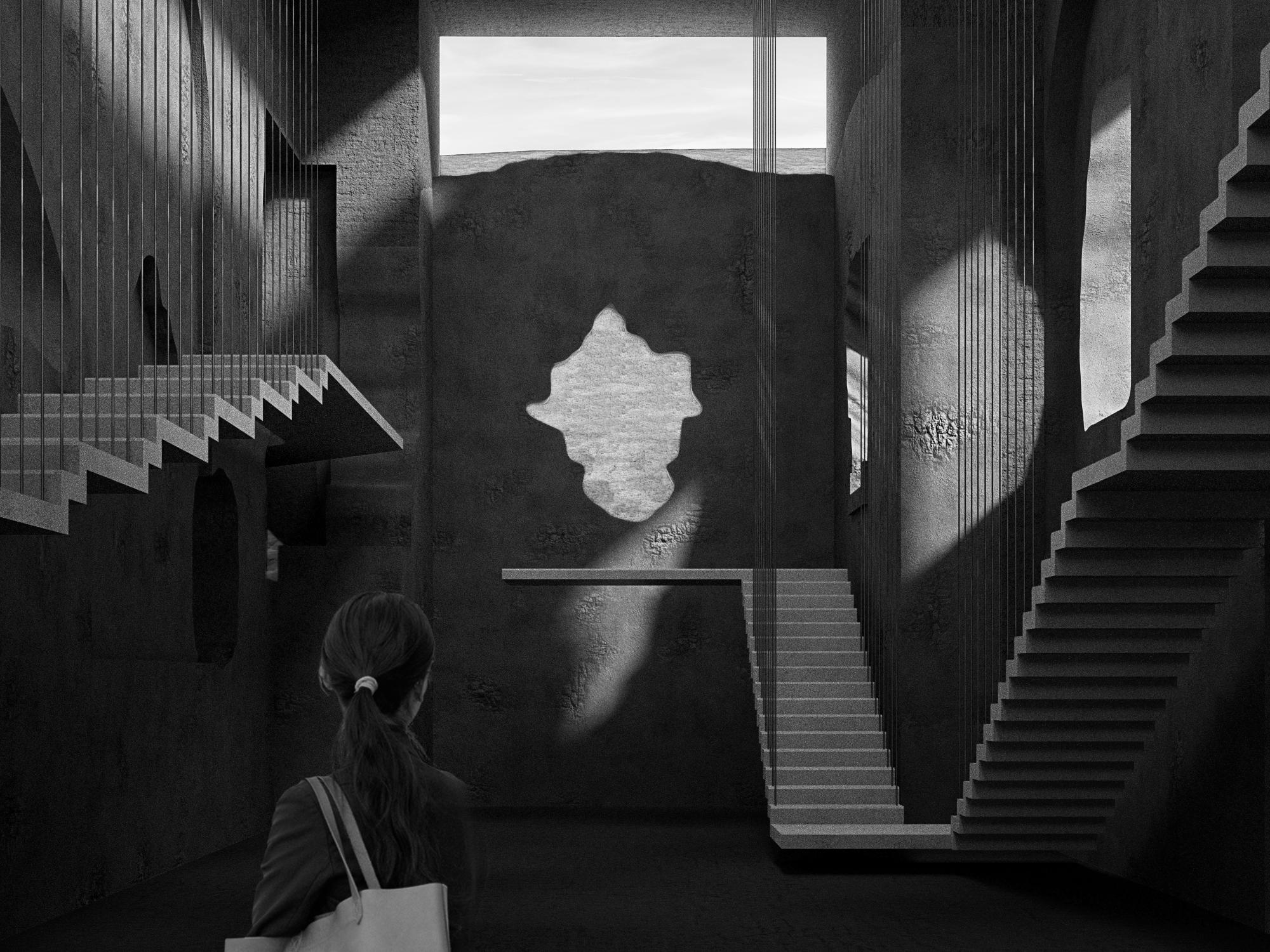

A ladder cut into the terrain is the connection between the space at and below ground level.
The cells can accommodate ten people, about as many as they were before the earthquake. The rooms are semi-enclosed and secluded. Their physical presence above the ground is directed at the remains of the aqueduct (the cells itself) or acts as a barrier against north winds (spaces for reading or cooking).
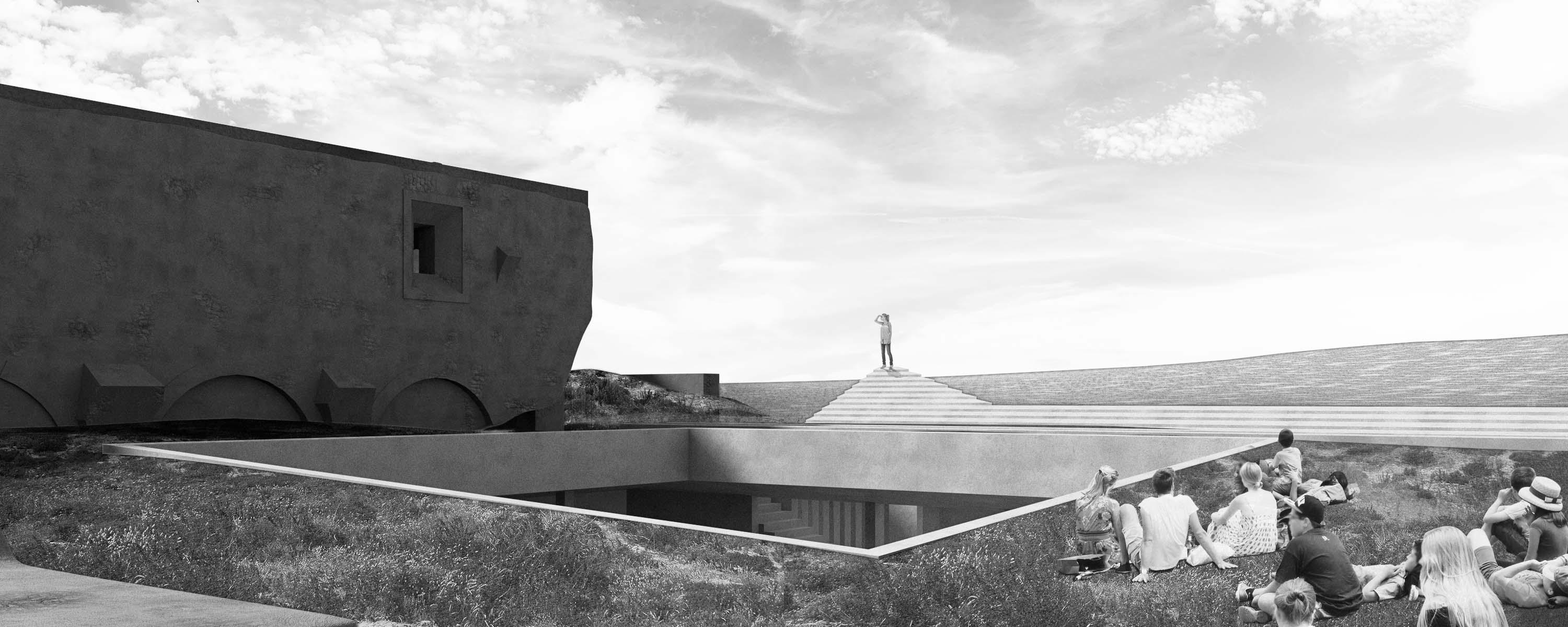

The cloister is a space for meditation, protected from the outside and open to the sky. It is a key space both as a communication and a visual connection between the fragments and the new spaces.


